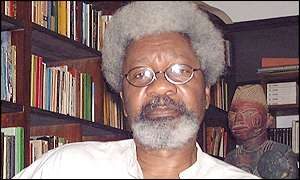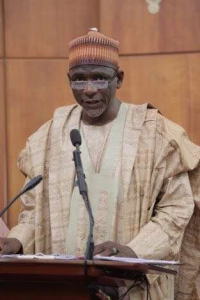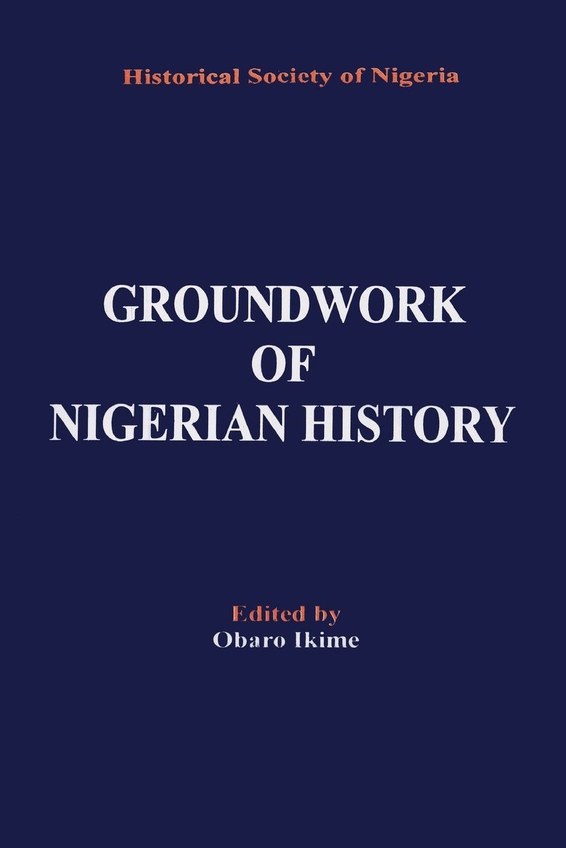Nigeria has just restored the teaching of History in schools, five years after it was taken off in favour of Civics. The decision was the outcome of pressures, pressure informed by a belief that History is inherently anti-colonial in nature or even liberatory in itself. At the presentation of Muhammadu Buhari: The Challenges of Leadership in Nigeria in Abuja recently, Bola Tinubu, APC mandarin said any nation which forgot its past has lost a beacon to guide its actions. Earlier in August, Wole Soyinka, Nobel laureate was quoted as saying that “History is so fundamental to self knowledge, to identity, to understanding where you came from and therefore where you might be headed”. Much, much earlier, Mallam Adamu Adamu, the Education Minister pointed out that anyone who did not know his or her history was worse than dead.
There is no sense in all these that History is actually a battleground as there is no such thing as History but histories. The pressure did not address the question of what sort of History should be taught. Hence, the argument for restoration of History as a school subject has been straight forward: pupils must know who they are or they would be lost in a complex world. But subjectivists such as Agnostics or oracular thinking do not have a same sense of History as objectivist Historian. A Eurocentric Historian does not see History the same way as an Africanist Historian sees it. Even within the Africanist Historians, there are irreconcilable differences.
This was the reason why every Nigerian university in those days that taught History was a battleground. Two of them are worth recalling. The first where this battle was fought out was the Institute of African Studies at the University of Ibadan where the Ibadan School of History and its Africanist Historians wrestled History from their Eurocentric counterparts. A more ideologically fierce battleground of History was to emerge at Ahmadu Bello University, Zaria when the Zaria School of History came into its own. Class analysis and anti-imperialism were enthroned at the heart of History. That was when the Bala Usmans, Joseph Inikori, Mahmud Modibbo Tukur, George Kwanashie, Sule Bellos, Monday Mangvat, amongst others, held the Department along with other big names from the Faculty of Arts and Social Sciences. So, which one should or will inform the renaissance of History in Nigerian schools? This is the question Okibe Sam Eza, an Abuja based Political Analyst, confronts in this interview. He is eminently qualified to do so, being a product of the Zaria School of History in those days.

Okibe Sam Eza

Nobel laureate Wole Soyinka

Education Minister Adamu Adamu
You were in ABU, Zaria in the full bloom of the Zaria School of History. There is some jubilation in the country today because the government has restored the teaching of History in schools. Is it the study of History that matter or the perspective of History one has? Do you need to study History to have a sense of History?
Well, I would say that at the primary and secondary school levels, you need History as History. You do not really encounter the controversies that make History a contest of perspectives that you have in mind until the university level. The question of perspectives is important and it is one of the main problems we have in Nigeria. But an African child who is coming to education should know about some African personalities for a start, for example. Chaka Zulu is there. He would need to know the military tactics of Mansa Musa of ancient Mali and about some of the great empires which predated the colonial encounter. Children should encounter History from the point that Africa had elaborate state structures. This way, it would be such that History that said some people came here to give us civilisation would be refuted. If we are going to teach History, it is not going to be History of storytelling but telling our children they had religion, class structures and the state in place. So, my answer is yes, you need History as such at that level. I must add though that I do not know the content of Civics. If we know what it is about, then we can juxtapose it with History. I do not know what they teach in Civics. I would still want the teaching of History. Because we need to show that there was civilisation here long before Mungo Park came by and that there were thinkers, warriors and other players which I already started listing.
Should Chaka Zulu be a model for African children?
Well, again I would say yes, that is as far as conquest and military prowess is concerned.
You argue for taking History beyond story telling. How does that work out if you were teaching the History of your place now?
In pre-colonial and post colonial Agila, the most important public asset is land and what was the ownership structure. The History of pre-colonial African communities must then bring out the class structure. In these societies, you had well developed classes. There were the peasants, there were the barons and other categories built around land ownership. What doing this would bring out is that our pre-colonial existence was not a wasteland which only the coming of Westerners brought to life. There was civilisation before Mungo Park surfaced here. And that civilisation was built around land ownership structure. The land was vested in the clan. It was communally owned. You are given your farm land. The land belongs to all farmers as much as your strength guarantees you. This is also the case with the chief although he is privileged in class terms. You know, he doesn’t physically go to the farm, the peasants help him with his own farm work and with harvesting.
Was he then exploitative?
I would not say he was exploitative. And that is the difference between class structure as it developed in Africa and Europe. Because of the communal ownership of land in Africa, the class structure was not exploitative as such. The chief was not exploitative. In my own analysis, he had a role he was playing. As the community head, he organised warfare, putting the arms together or procuring more if need be. So, he had his own roles. I would only say he was exploitative if he had something outside his needs. Even when you are hungry, it was the chief’s responsibility to be the caretaker of all
You want to say he was not an exploiter in the capitalist sense
Yes, he was not. He had surpluses quite alright but his surpluses were communally accessible. So, he was a contrast of the capitalist.
Someone reading this interview might say this is the problem with the Zaria School of History – class and class analysis as the corner stone of History. Would you be surprised?
No. I wouldn’t be surprised. I would rather expect it. But that is how we were taught. We were taught that conflict is at the heart of society and that you can never find solution to conflict if you do not look at it from the class perspective
Yea but new arguments are talking of reflexivity and of diversity of identity beyond class such as gender, ethnicity and so on
Well, even with ethnicity, there is still class. In Nigeria, our own emphasis is ethnicity and religion. But a capitalist in Badagry and another one in Bama share more in common than they share with their respective peasants. It is a matter of class and interest. You can see the revelations in the House of Representatives.
So, how does this connect to the question of how we might teach History or what sort of History we need?
We have looked at the chief in the Agila community. He was not exploitative because his surplus was available to the down trodden. Based on this, the History we teach our children should be based on from each according to his or her ability to each according to his or her needs. Because, in the Agila community, there were old persons home and food was prepared and taken to them there. There was something in place for the old and infirmed and those who could not fend for themselves. People who, for some reasons, had no kids, no children and the society took care of such people. There were some elements of Socialism in the arrangement and it gave everyone security. That was pre-colonial. The colonial system came and distorted everything.
Now that we are in the post colonial order, how might we shape History teaching?
We should teach History to counter this thinking that there was a better civilisation that came here from somewhere.
Would we not be falling into counter-factualisation?
History is dynamic. While teaching History, you cannot run away from counter-factualisation. I don’t even call it so but providing evidence.
The transnational media has become a crucial site of History teaching. Some people would say CNN is actively framing History more than some Departments of History today. Yet, we do not have our own CNN. Are you mindful of that?
Let us start from somewhere. I am sure in China, they have CNN too but Confucianism is still their dominant world outlook. A boy from China today can stand up to that.
I am particular about our own cultural vulnerability to other influences in Africa. I think we are more vulnerable than the Chinese or than any other culture because we have not developed our capabilities
I take note of that but i think it is still possible to develop a History orientation for our children that enable them to say, I am an African, this was our tradition. That is rather than the blanket it totally, no past and History started only with the coming of whites. Even our religion, it is not as if we had no religion. The issue of slave trade which is one area the Western world want to blanket out. But in every market, there must be a buyer and a seller. It could not have been all savages.
But these things are still going on today through new institutions and channels
That is true of course.
And they have their own historians too and our leaders listen to their historians more
Again, you are right but they can be defeated
But they are winning. They are everywhere now, from the economy to History
But they cannot go on winning like that. Nothing lasts forever




























